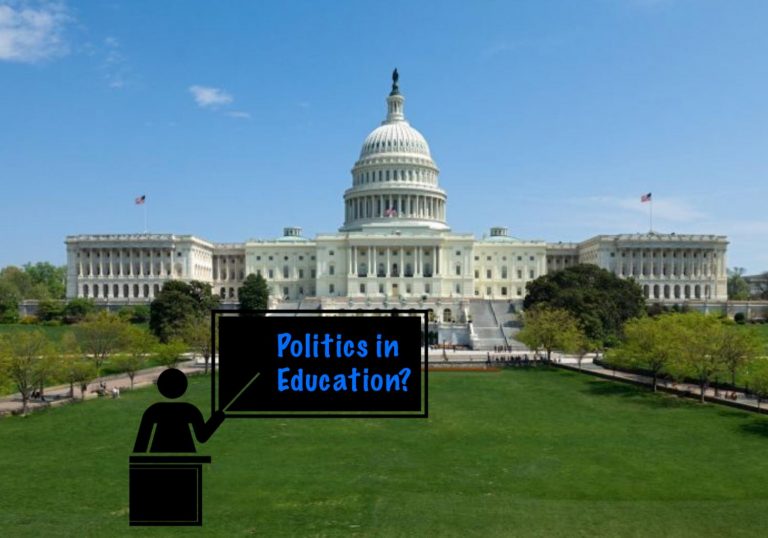Why Politics Belong in Education
Many claim that education should be apolitical and that politics has no place in the classroom—but is it even possible to separate the two?
February 23, 2022
Politics and education have always had an uncomfortable relationship. From long-standing opposition to teaching concepts concerning LGBTQ identities, “indoctrinat[ing]” elementary-school students “into a political ideology about gender,” to recent pushes against diversifying school curricula because it supposedly introduces a “politicized and divisive agenda,” the idea that politics doesn’t belong in education has often been used as a factor in considering what’s taught and what isn’t.
However, in this sense, the label of “political” is already used inconsistently. There are political beliefs and practices the right won’t include in its criticisms of “politics” in education. For instance, it likely doesn’t mind the Pledge of Allegiance, even though it’s political. In fact, it appears that what’s labeled “political” in education in the first place usually excludes pre-existing educational practices that we’ve gotten used to, like the Pledge. So being political in itself isn’t the issue.
The idea of politics in education is often associated with a supposed divisiveness, which may be the true reason why “political” topics are opposed. “Divisive” issues are likely singled out because they draw attention to social divisions, especially in which groups have more power and which groups have less. Therefore, they pose a threat to a coherent national identity. Conflict between groups within a nation calls into question the idea that the nation is one unified community. More specifically for America, which nationalists see as a place of unwavering freedom and liberty, awareness of marginalizing social tensions deals a big blow to their idealistic image of the country.
Criticisms of “politicizing” education in general are often founded upon a denial that such injustices exist in the first place. This brings us to a greater concern with teaching “political” topics in general: that politics and objectivity are irreconcilable. These topics are often deemed too “unsettled” or “opinionated” for there to be a certain right answer. So, the reasoning goes, we shouldn’t give them the appearance of being certain by teaching about them in schools—especially teaching only one viewpoint of them. And any education that goes against this principle of strict objectivity is propaganda and indoctrination.
Setting aside the inconsistency with which political topics in education are labeled as “political,” it seems absurd to suggest that claims about the presence of social inequalities cannot be verified, such as by empirical observation, when doing so is already a common application of the social sciences. People aren’t simply making up narratives about racial inequality, wealth inequality, and so on for the fun of it. In addition, this professed objectivity and impartiality leads to a refusal to take a side in even the most obvious of situations—one example would be the Texan school administrator who told teachers to “offer students access to a book from an ‘opposing’ perspective” about the Holocaust, in an attempt to follow a new state law.
One may argue that we shouldn’t teach political topics because they make people uncomfortable. And political topics definitely often do. But I doubt that such discomfort alone is enough to convincingly argue against including political topics. Only some kinds of discomfort are taken seriously by the people who usually make these arguments—if I weren’t comfortable with the Pledge of Allegiance’s promotion of nationalism, for instance, they probably wouldn’t care as much about my concerns. So this argument from discomfort, by prioritizing discomfort with viewpoints that the people raising this argument disagree with, merely perpetuates political bias instead of getting rid of it. Additionally, people usually feel uncomfortable whenever their views are challenged on “non-political” topics too—why should discomfort only matter when the views challenged are “political”?
As all our lives are shaped by politics, understanding political topics is key to understanding and navigating the world. Given that, there is no reason to shy away from political topics on the basis of them being political alone, political topics should be included in education.


